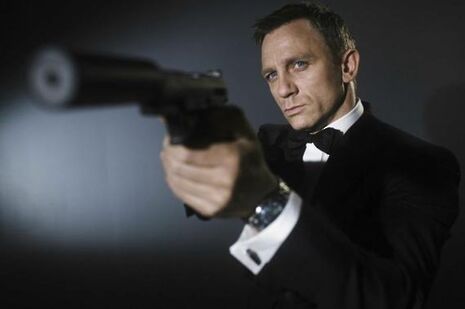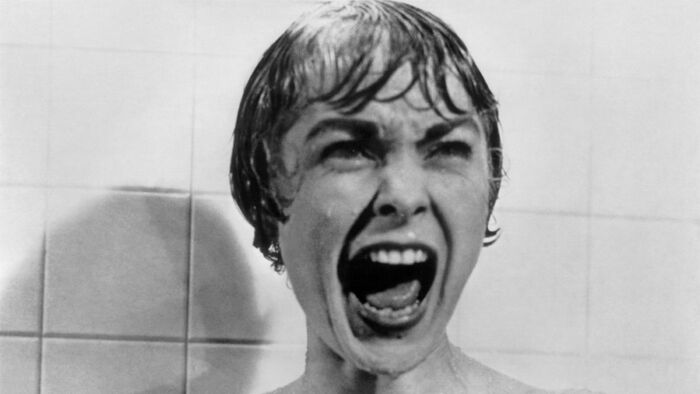Five Great British spy films
Tudor Evans discusses the biggest landmarks of the genre so far, and ponders where this most venerably British institution may be headed next

The spy story is a distinctly British institution, which has long held up a mirror to the mood of our nation. Although often dismissed as mere shilling-shocker entertainment (though there is no doubt they entertain), their ability to capture our society’s deepest fears make them something more – a fascinating record of a country that has changed radically over the last century.
The 39 Steps (1935)
Based on the 1915 John Buchan novel of the same name, this film was Hitchcock’s first classic – long before the bright lights of Hollywood came-a-calling. When a woman enters his apartment with a knife in her back and a secret on her lips, typical English gent Richard Hannay (Robert Donat) is drawn into a mysterious plot. Hannay whisks from London to the Highlands and back, even picking up a partner in (solving) crime along the way – the charmingly disgruntled Pamela (Madeleine Carroll). The rip-roaring, silly nature of this film, with its quirky British characters, captures an old-fashioned sense of spiffing adventure.
The Third Man (1939)
14 years later and the tone is quite something else. This film, with a flock of big names attached – Carol Reed, Grahame Greene, Joseph Cotton, Orson Welles – was rated by the BFI as the greatest British film of all time. It is easy to see why. Shot on location in war-torn Vienna, the mood is dark and dismal. The spectre of war haunts every frame in the form of real shelled-out buildings and bomb craters. Holly Martins (Cotton) comes to Vienna to visit a friend. But when he gets there, he discovers his friend is dead. Or is he? Filled with the pessimistic moralising typical of Greene, this is a film that, more than any other, captures a world – and a nation – that had been ruined and wearied by war.
It's got more famous actors than you could fit in a canapé reception, and brings back that very British X-factor the new Bond films have lost
The Spy Who Came in from the Cold (1965)
The Welsh-man in me is singing. Richard Burton plays Alec Leamas, the down-and-out MI6 officer with a drinking habit (was he even acting?) in this stylish adaptation of Le Carré's best novel. Leamas defects to the Stasi in order to destroy his nemesis, Mundt (Peter Van Eyck). But, as is inevitably the case with Le Carré, the line between friend and enemy is never plainly drawn. The inky black-and-white photography, along with its brooding pace, put the film of a piece with other 60s British classics, such as the Pinter-penned The Servant, which analysed the depravation and disaffection that followed the collapse of the British Empire. Its heightened paranoia, furthermore, beautifully revitalises the hazy tensions of the Cold War. Perhaps the least-known film on this list, but a must watch.
Casino Royale (2006)
After a long time out in the cold, the British spy film came roaring back into style with this, the greatest of all Bonds. You probably know the story – terrorist banker of choice, Le Chiffre (Mads Mikkelsen) loses someone else's money in a rather terrible investment and decides to recoup it in a high stakes game at Casino Royale. Bond (Daniel Craig) decides to join him for a spot of poker and bloody murder. Along the way he smashes cars, falls in love and reinvents the 007 wheel. But in many ways, this film always inspires a wistfulness in me. For those distinctly British characteristics we have spoken of – the whimsy of the earliest films, and the stylised darkness of the mid-era ones – are gone, replaced with special effects and high-octane action. With this, it's true, the British spy film reached peak capital. But one must ask: at what cost?
Tinker Tailor Soldier Spy (2011)
Another Le Carré adaptation, and hope that there’s a future for the British spy film yet. This is almost a 70s period drama, only with more guns and fewer love stories. Retired agent George Smiley (Gary Oldman) has been called in by Control (John Hurt) to sniff out a mole in MI6, dredging up ugly memories in the process. Loosely based on the story of Kim Philby, this film has an intriguing connection to Cambridge history. It's got more famous actors than you could fit in a canapé reception, and brings back that very British X-factor the new Bond films have lost. Undoubtedly, though, it is Le Carré's genius for story-telling that makes this film riveting from start to end, and worth watching for the discerning connoisseur and every(wo)man alike.
We seem to have an eternal fascination with the spy story. Bond just won't die, and the recent Kingsman films show that there is still a large appetite. It will be interesting to see what fixations and fears British spy films will be espousing in years to come as the worries of our society change. Perhaps it's time for a Brexit Bond – who said Brussels was boring?
 News / Cambridge academics sign open letter criticising research funding changes22 February 2026
News / Cambridge academics sign open letter criticising research funding changes22 February 2026 News / Supporters protest potential vet school closure22 February 2026
News / Supporters protest potential vet school closure22 February 2026 News / University Council rescinds University Centre membership20 February 2026
News / University Council rescinds University Centre membership20 February 2026 News / Hundreds of Cambridge academics demand vote on fate of vet course20 February 2026
News / Hundreds of Cambridge academics demand vote on fate of vet course20 February 2026 Comment / A tongue-in-cheek petition for gowned exams at Cambridge 21 February 2026
Comment / A tongue-in-cheek petition for gowned exams at Cambridge 21 February 2026









